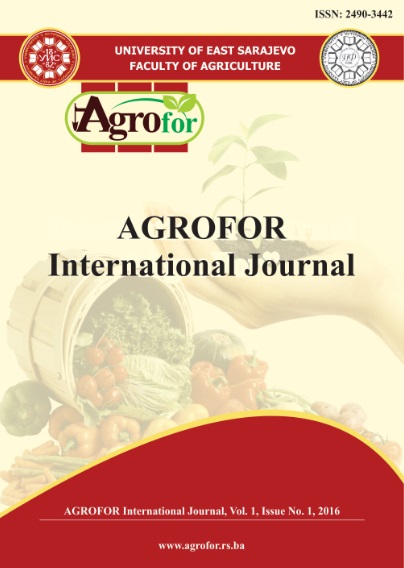ECOLOGICALLY BASED DISEASE MANAGEMENT TECHNIQUES IN BARLEY CULTIVATION IN THE CENTRAL BLACK SOIL REGION
DOI:
https://doi.org/10.7251/AGRENG1601041LAbstract
At present, there are microbiological Bacillus-based products used to preserve
valuable micro biota and improving the level of biological soil productivity as well
as sustaining the local environment. The research focuses on discovering how some
particular biological products and autochthonous microorganisms influence the
yield capacity of barley grown in the Black-Earth region of Russia. The research
objectives included a search for autochthonous strains of microorganisms that
improve resistance to diseases, estimation of how biological products contribute to
the quality of barley seeds, biological products effect on the spread and disease
resistance and estimation of how biological products enhance the yield capacity of
barley. The paper describes the results of identification of an autochthonous
Bacillus strains. PCR diagnostic methods were used to confirm the strain specific
origin of two sample cells extracted from soil (S1 and S2). The study involved the
analysis of micro biota of leached chernozem, which revealed the autochthonous
strain of Bacillus S1 having a germicidal effect. The S1 strain revealed Bacillus
subtilis and Bacillus сеreus, while S2 revealed only Bacillus subtilis, as detected by
the method of molecular diagnostics based on using species-specific primers.
Biological treatment of the seeds improved their sowing qualities, namely,
germination readiness and germination capacity. In addition, it was found out that
such treatment improves the resistance to disease affection and spread. Bacillus S1,
in particular, reduces the disease affection by 16,5 % and the disease spread 3,5 as
much. Finally, the experiment demonstrated that biological treatment can
contribute to sustaining healthy environment for the plants and thus increase their
yield capacity.

